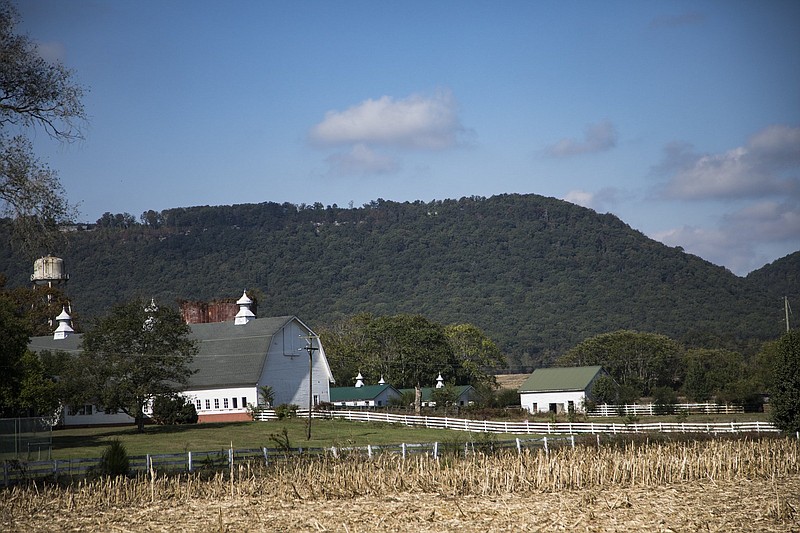Will Rogers, the witty cowboy from Oklahoma, was a sensational entertainer 100 years ago. He quipped, "Being a hero is about the shortest-lived profession on earth." How true those words are today. Advocates of cancel culture, Black Lives Matter and critical race theory wish to destroy not only our heroes but our history and replace it with their own Marxist agenda.
In our little corner of the world, however, there remain heroes untainted by political correctness. They were men and women who didn't complain about what they didn't have. Who would have heard them? Instead, they thanked a gracious God for what they had.
Curtis Coulter vividly describes many such heroes in his fifth book, "An Excursion to the Past: A History of Sale Creek and Coulterville, Tennessee." It is set in northern Hamilton County from 1775 through the present, and is much more than an intriguing read and meticulously researched history. It is the story of how courageous people in a free society can overcome obstacles and successfully adapt to their environment through ingenuity, hard work, faith and perseverance.
Robert Patterson was such a person. Raised on the American frontier near present-day Knoxville, he fought against the British in the 1780 Battle of King's Mountain in North Carolina - the first definitive Patriot victory in the Revolutionary War. He was only 16 years old.
Patterson became a miller and received a land grant to establish a grist mill serving the Cherokee Indians near Opossum Creek in 1807. In 1819, the land became Hamilton County, Tennessee, and Patterson was named chairman of the county court. He helped choose Poe's Tavern in present-day Soddy-Daisy as the first county seat.
Patterson and his children were instrumental in establishing businesses, schools and churches in early Hamilton County. We have no statue or painting of Robert Patterson. Even his home just south of Sale Creek, the first house in Hamilton County, burned in 1971. Yet, Patterson's courage, work ethic and resourcefulness served as a template for those who would follow him into the beautiful Tennessee River valley. His descendant, Robert Patterson, still proudly displays his ancestor's Kentucky long rifle.
In 1821, Patterson's friend, James McDonald, bought land just north of Sale Creek, eventually acquiring more than 2,000 acres. His descendant, Roy McDonald, became a successful farmer, dairyman, businessman, and founder and publisher of one of this newspaper's forerunners for 54 years. When he died in 1990, he was one of the most influential men in Southeast Tennessee, but he never forgot his rural roots. His family's 2,170-acre homestead was recently sold to Hamilton County and will become a new industrial park.
Coulter also highlights the contributions of William List. After earning his degree from Purdue University, he followed his two older brothers to Chattanooga. Their father, a Union Army veteran, told them about the rich farm land here. William purchased land in Sale Creek in 1902 to grow strawberries. He organized a highly successful association among more than 100 growers to coordinate production, shipping and marketing. By 1921, refrigerated railroad boxcars moved Sale Creek strawberries throughout the country.
Eventually, List and his son, Bill, planted peach orchards with equal success. For several years, Sale Creek was the peach capital of the country. Their efforts ensured work for many Hamilton County residents during the dark days of the Great Depression. Bill's daughter still lives in the beautiful house her grandfather built.
Agricultural competition and the post-World War II migration to cities transformed the once bustling Sale Creek community into the quiet area we know today; however, the proposed industrial park promises new opportunities. Patterson, McDonald, List and others would be pleased. Fortunately, there are no statues of those quiet heroes for lesser people to topple, but their blood courses in their descendants' veins and inspires intelligent, hard-working citizens like them.
Roger Smith, a local author, is a frequent contributor to the Times Free Press.
